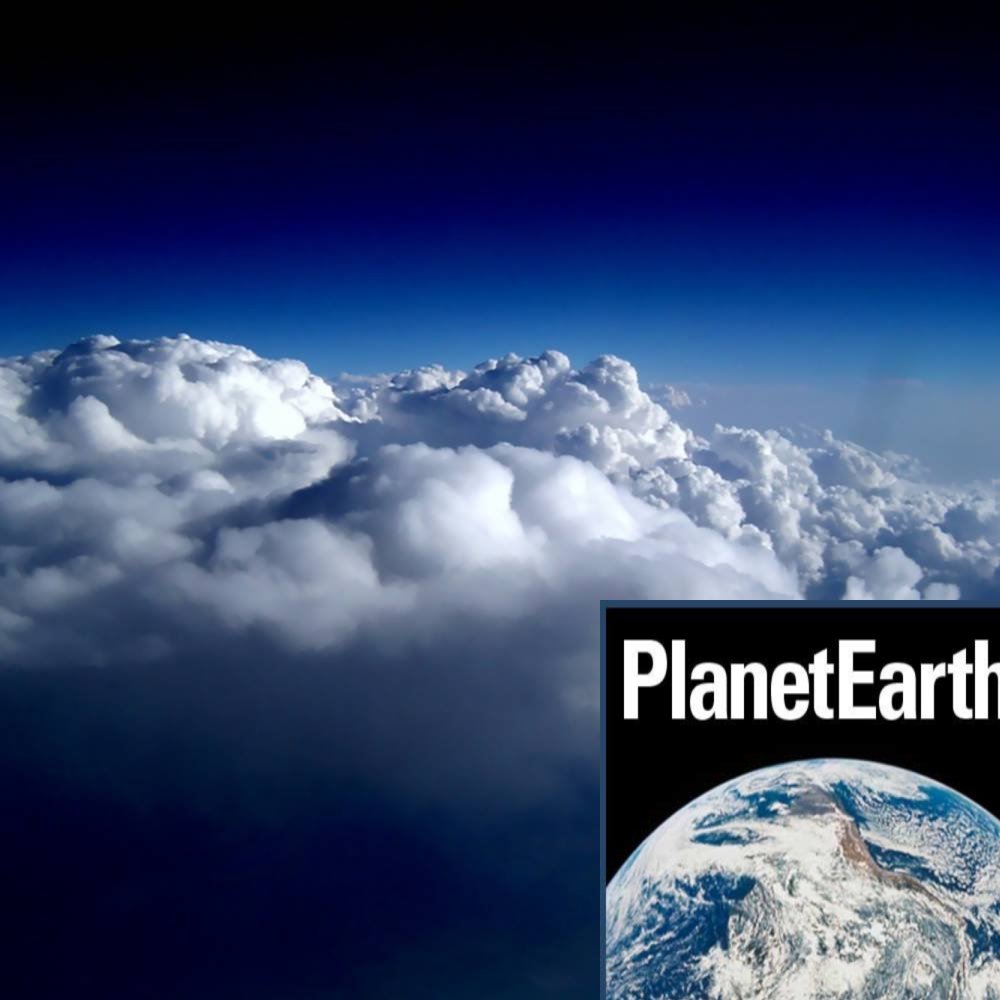
Naked Scientists, In Short Special Editions Podcast
Special scientific reports and investigations by the Naked Scientists team
- Update frequency
- every 6 days
- Average duration
- 10 minutes
- Episodes
- 981
- Years Active
- 2006 - 2025

Bumblebee declines, microbes, and amazing birds
This week in the Planet Earth Podcast - what UK farmers are doing to protect the country's vanishing bumblebees, butterflies and other pollinating insects; how scientists are trying to figure out how…
00:20:20 |
Fri 17 Jun 2011

Learning about Sheep Learning
Professor Jenny Morton provides new insight into the cognitive abilities of the supposedly dim-witted sheep and explains how these quick learning animals can be used to model Huntington's Disease... …
00:17:40 |
Mon 13 Jun 2011

The Pressures of the Deep Sea
Anything in the deep sea, whether that's the microbes that live down there, or the research vehicles sent down to take samples of them face the same challenges from being way down deep. So why study …
00:26:48 |
Thu 09 Jun 2011

Cuckoos at Wicken Fen, snow, and radiocarbon dating
This week in the Planet Earth Podcast - the cunning tricks the cuckoo uses to get another bird to do the parenting, why researchers are studying snow in Sweden, and how an improved radiocarbon dating…
00:20:59 |
Fri 03 Jun 2011

Picturing the underwater world
One of the biggest problems when it comes to caring for the ocean realm is that it is out of sight and out of mind. It's hard to care about something you don't know about, and most people, most of th…
00:11:13 |
Wed 01 Jun 2011

Taking a lobster's view on the oceans
How do marine animals hear, see, touch, and smell the world around them? Life underwater is obviously very different to life on land and it can be difficult for us air-breathing humans to imagine wha…
00:17:38 |
Tue 31 May 2011

Exploring the wonders of the deep
The saying goes that we known more about the surface of the moon than we do about the deep sea - and that's probably true. But modern technologies are opening up the mysterious depths allowing scient…
00:15:58 |
Mon 30 May 2011

Flood defences, the Southern Ocean, and whiter clouds
This week in the Planet Earth Podcast, why removing some man-made coastal flood defences might not be such a harebrained idea, what it's like studying gas exchange in the wilds of the Southern Ocean,…
00:18:52 |
Tue 24 May 2011

Cambridge Cafe Scientifique - Zero Degrees of Empathy
This month, Professor Simon Baron-Cohen explores human empathy and explains what empathy is, how it differs amongst the population and the neurological and environmental causes of these differences..…
00:21:04 |
Mon 16 May 2011

Science from a plane, and forecasting space storms
This week in the Planet Earth Podcast: how a specially-designed twin turboprop research plane is helping scientists in a huge range of subjects from archaeology to ecology, and why a violent space st…
00:21:24 |
Thu 05 May 2011

Volcanic ash and sediment time machines
This week in the Planet Earth Podcast, how last year's eruption of the Eyjafjallajkull volcano in Iceland gave scientists an unparalleled opportunity for research, and why sediment from rivers like t…
00:19:12 |
Tue 26 Apr 2011

The Power of Magnetism
This month we attract your attention to the power of magnetism as we explore just what magnetism is and how it can be induced. We also explore the role of magnetism in superconductors, as well as a c…
00:26:45 |
Sun 17 Apr 2011

Um, How Toddlers Learn Language
Traditionally viewed as a poor verbal practise, the ums and ers uttered by parents may in fact play a critical role in helping toddlers to learn new words, as Rochester University researcher Richard …
00:08:51 |
Thu 14 Apr 2011

The Earth's magnetic field, snow, and Chernobyl
This week in the Planet Earth Podcast: how scientists plan to measure the Earth's magnetic field from space, why one researcher is in the frozen town of Churchill in northern Canada, and how the Cher…
00:20:45 |
Thu 07 Apr 2011

Fish poo, dead whales, and the Japan earthquake
This week in the Planet Earth Podcast: how the famous White Cliffs of Dover could be made of fish poo (at least partially), why one researcher is so interested in dead whales, and why the Japan earth…
00:20:06 |
Wed 23 Mar 2011

Reefs at Risk Revisited
Coral reefs are vibrant ecosystems packed with spectacular underwater life that protect coastlines and provide food and income for millions of people. But coral reefs are at risk. How threatened are …
00:29:11 |
Thu 10 Mar 2011

Carbon capture and storage, floods, CryoSat-2
This week in the Planet Earth Podcast: how carbon capture and storage works and why it's here to stay, the effect of floodplains on water pollution, and how exactly do you measure the thickness of po…
00:20:03 |
Wed 09 Mar 2011

Tracking insects with a Big Dish, Australian floods
This week in the Planet Earth Podcast: how tracking insects can help scientists forecast summer storms and floods, and the role one of Europe's key satellite missions played in the recent floods in Q…
00:18:11 |
Tue 01 Mar 2011

Alzheimers on the Mind
For this month's Cafe, Graham Fraser, from the Medical Research Council, discusses the prevalence and causes of Alzheimers disease as well is his research on the disease and the possible methods of t…
00:17:07 |
Thu 17 Feb 2011

Smart Way to Rehab
Fewer than one third of patients who suffer a heart attack attend rehabilitation sessions, despite evidence that this follow-up support can be vital in reducing the risk of further heart attacks and …
00:09:46 |
Fri 11 Feb 2011
Disclaimer: The podcast and artwork embedded on this page are the property of Dr Chris Smith. This content is not affiliated with or endorsed by eachpod.com.